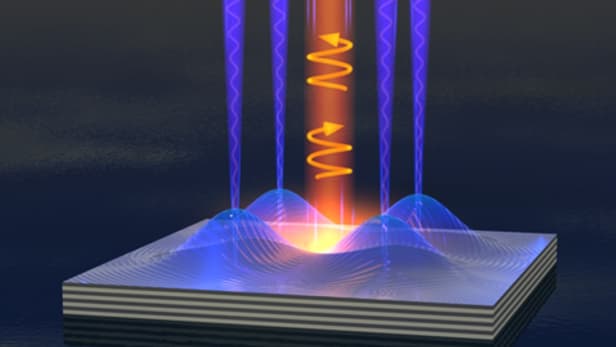
Breaking News
 Quantum Internet Explained: Lasers, Satellites, & Secure Communication | Impact Quantum Podcast
Quantum Internet Explained: Lasers, Satellites, & Secure Communication | Impact Quantum Podcast
 Stanford's secret censorship meeting exposed
Stanford's secret censorship meeting exposed
 Bill Gates Launches $1.4 Billion Soil Bioengineering Initiative...
Bill Gates Launches $1.4 Billion Soil Bioengineering Initiative...
 Did you know that Israel is literally NOT America's ally?
Did you know that Israel is literally NOT America's ally?
Top Tech News
 Goodbye, Cavities? Scientists Just Found a Way to Regrow Tooth Enamel
Goodbye, Cavities? Scientists Just Found a Way to Regrow Tooth Enamel
 Scientists Say They've Figured Out How to Transcribe Your Thoughts From an MRI Scan
Scientists Say They've Figured Out How to Transcribe Your Thoughts From an MRI Scan
 SanDisk stuffed 1 TB of storage into the smallest Type-C thumb drive ever
SanDisk stuffed 1 TB of storage into the smallest Type-C thumb drive ever
 Calling Dr. Grok. Can AI Do Better than Your Primary Physician?
Calling Dr. Grok. Can AI Do Better than Your Primary Physician?
 HUGE 32kWh LiFePO4 DIY Battery w/ 628Ah Cells! 90 Minute Build
HUGE 32kWh LiFePO4 DIY Battery w/ 628Ah Cells! 90 Minute Build
 What Has Bitcoin Become 17 Years After Satoshi Nakamoto Published The Whitepaper?
What Has Bitcoin Become 17 Years After Satoshi Nakamoto Published The Whitepaper?
 Japan just injected artificial blood into a human. No blood type needed. No refrigeration.
Japan just injected artificial blood into a human. No blood type needed. No refrigeration.
 The 6 Best LLM Tools To Run Models Locally
The 6 Best LLM Tools To Run Models Locally
 Testing My First Sodium-Ion Solar Battery
Testing My First Sodium-Ion Solar Battery
 A man once paralyzed from the waist down now stands on his own, not with machines or wires,...
A man once paralyzed from the waist down now stands on his own, not with machines or wires,...
Liquid light switch bridges the gap between light and electricity

Scientists working at the University of Cambridge have used a form of liquid light to create a semiconductor switch that is so small that it not only blurs the distinction between light and electricity, but could also enable the development of much faster and smaller electronic components well into the future.
With the limits of Moore's Law looming closer day by day, the demand for faster, smaller electronics ever increasing, and microelectronics reaching the point where quantum effects are seriously challenging the continued use of electrons as a transporter of data, researchers the world over are exploring ways to solve these problems.
With contemporary methods used to convert between electrical signals and optical ones considered largely inefficient, University of Cambridge researchers believe that it would be better simply to cut out the middleman and mix the two together. In a quest to achieve this, the researchers created a switch using a new state of matter known as a Polariton Bose-Einstein condensate to combine electric and optical signals, while consuming infinitesimally small quantities of energy in the process.



